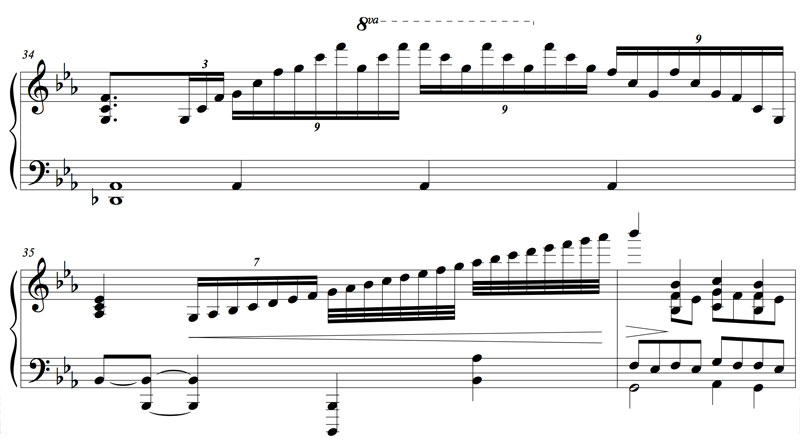Free Lessons
Critiquing “Fairest Lord Jesus”
As I mentioned in my last post, I was at the Composers Symposium last week meeting with other writers and publishers. One of the big things we did was introduce our music to each other and get publisher feedback. In the room were decision makers for Hal Leonard, Lorenz, Fred Bock and probably other publishers too.
The song I played was the free arrangement I introduced last month: Fairest Lord Jesus. Yes, I sort of threw it together in an hour like I do with all the free arrangements but it was current and in my mind, not horrible.
So I played it. When I was done, almost every publisher in the room jumped on one particular thing they did not like about it. It was the only criticism they had but it was an important criticism so I want to share it with those of you who write and hope to be published someday.
Basically, their concern was that I had written a piece at a moderate advanced level but had thrown in two bars that were very advanced. The link to the song is above and you can see what they mean if you look at the whole piece but here are the two specific bars they really objected to.
Now the truth is that those two bars are not really as advanced as they look. The first one contains a three note pattern that is just repeated up and down the keyboard. It does have the #11 in it which makes the sound a bit exotic but not more difficult. In fact, I would suggest that the #11 makes it easier for most pianists than the normal alternatives. The second bar is nothing more than an Eb major scale which I would suspect most moderately advanced pianists can play in their sleep.
But regardless of how advanced those two bars really are, the publishers were correct. The two bars at least look very hard and are comparatively out of whack with the rest of the arrangement (in terms of difficulty). They would steer many pianists away from the piece and perhaps from even buying the book the arrangement was in.
In a very polite way, the publishers told me I should consider changing the arrangement, perhaps wondering how I would react–most of them had never previously interacted with me and as we all know, musicians can be sensitive about such things. I diffused their concern by picking up the sheet music and tearing out the two bars. They enjoyed that.
It was an easy decision for me to agree with that change. I don’t feel strongly about those two bars at all. I can write those bars in a dozen easier ways that will accomplish the same thing musically. That is not to say I would make any change they suggested. If for example, they had told me I needed to go back to triadic harmony, it would have been a different story. But this change? No problem.
Anyway, the moral of the story for you writers is to try to keep the technical level of your pieces at a consistent level. If it is an advanced piece, make it advanced but if it is written at a more moderate level, don’t throw in one thing that only advanced players can play.
By the way, one thing I heard over and over this week was that advanced piano music is hard to sell. Arrangers and writers need to write at a lower level (moderately advanced) usually if they want to get published. Since I have never been focused on getting published, I have never thought about these things, but even if I am giving away arrangements for free, it still makes sense to make them as accessible as possible.

